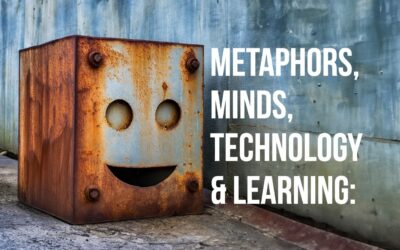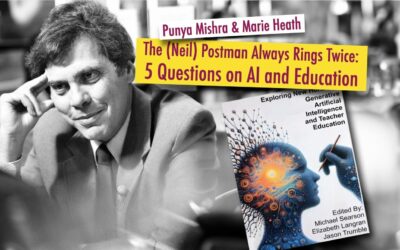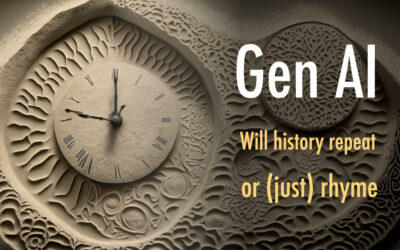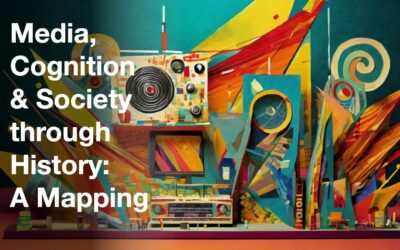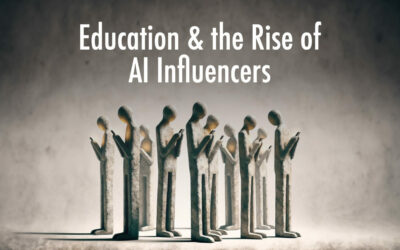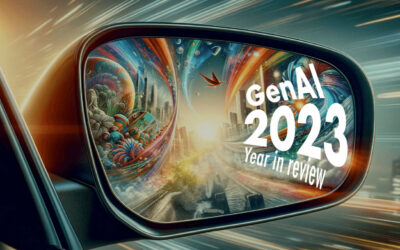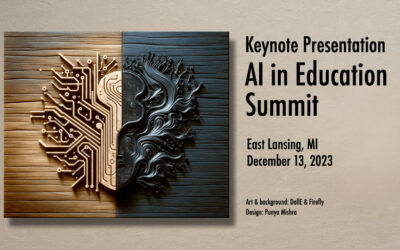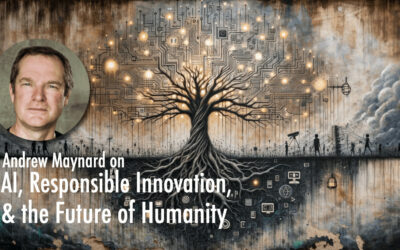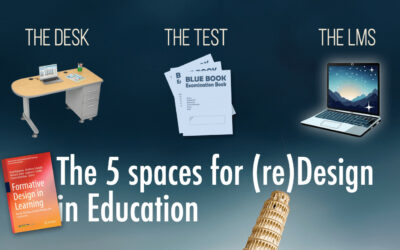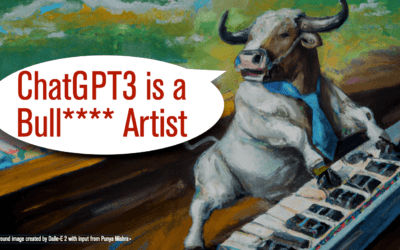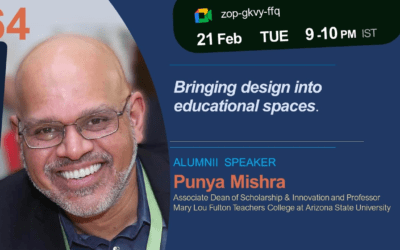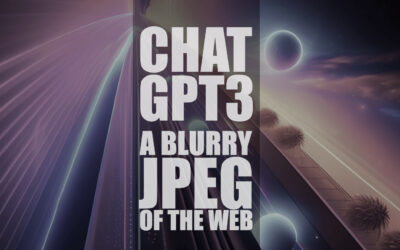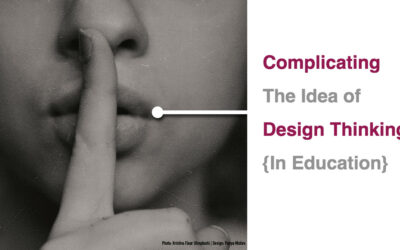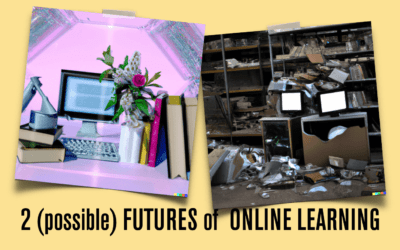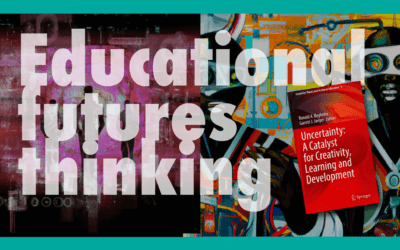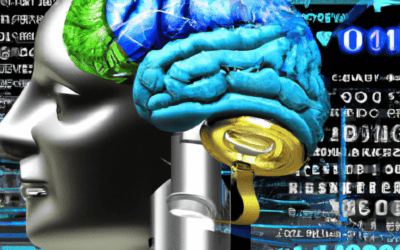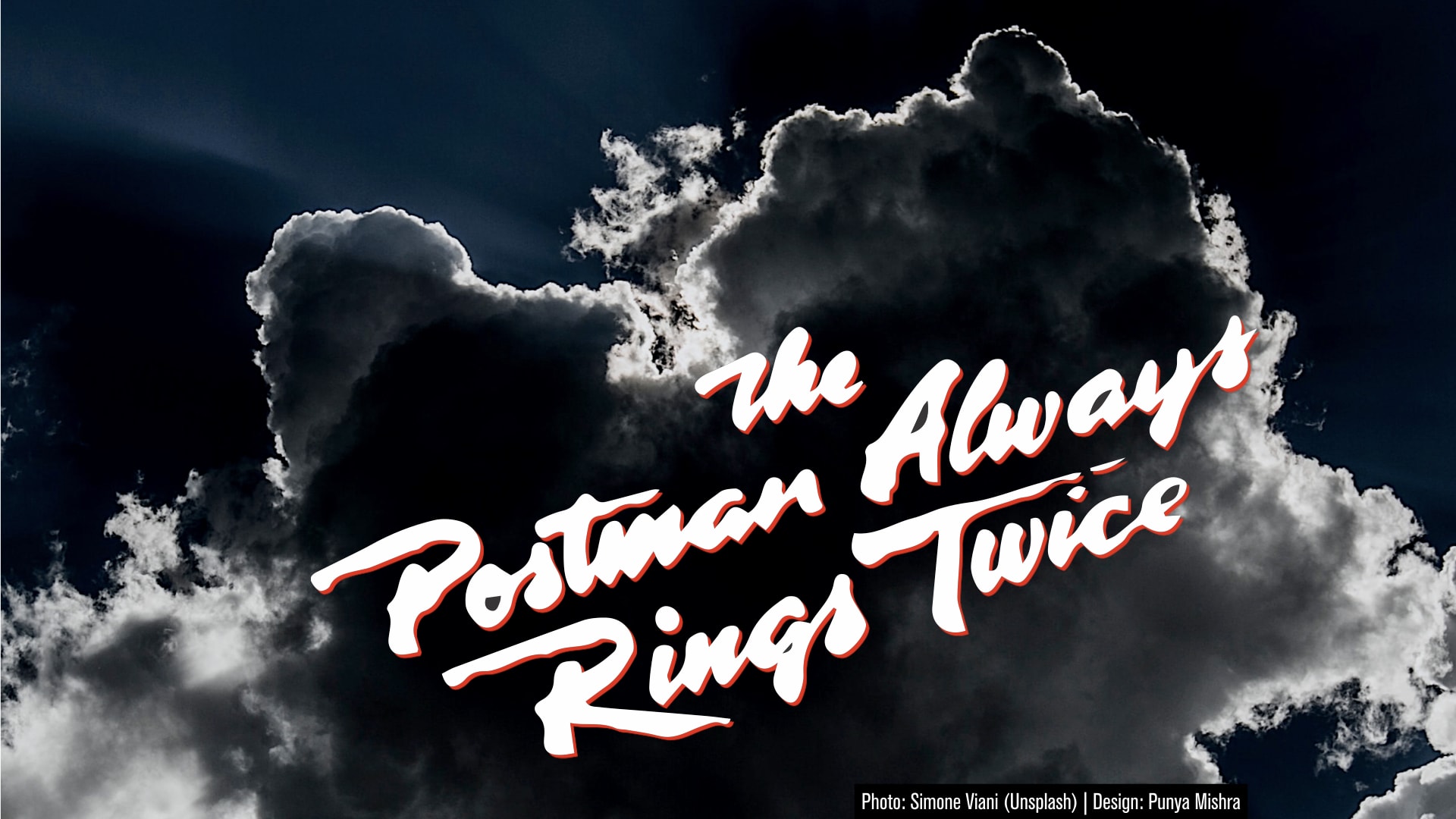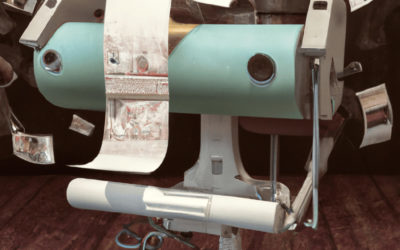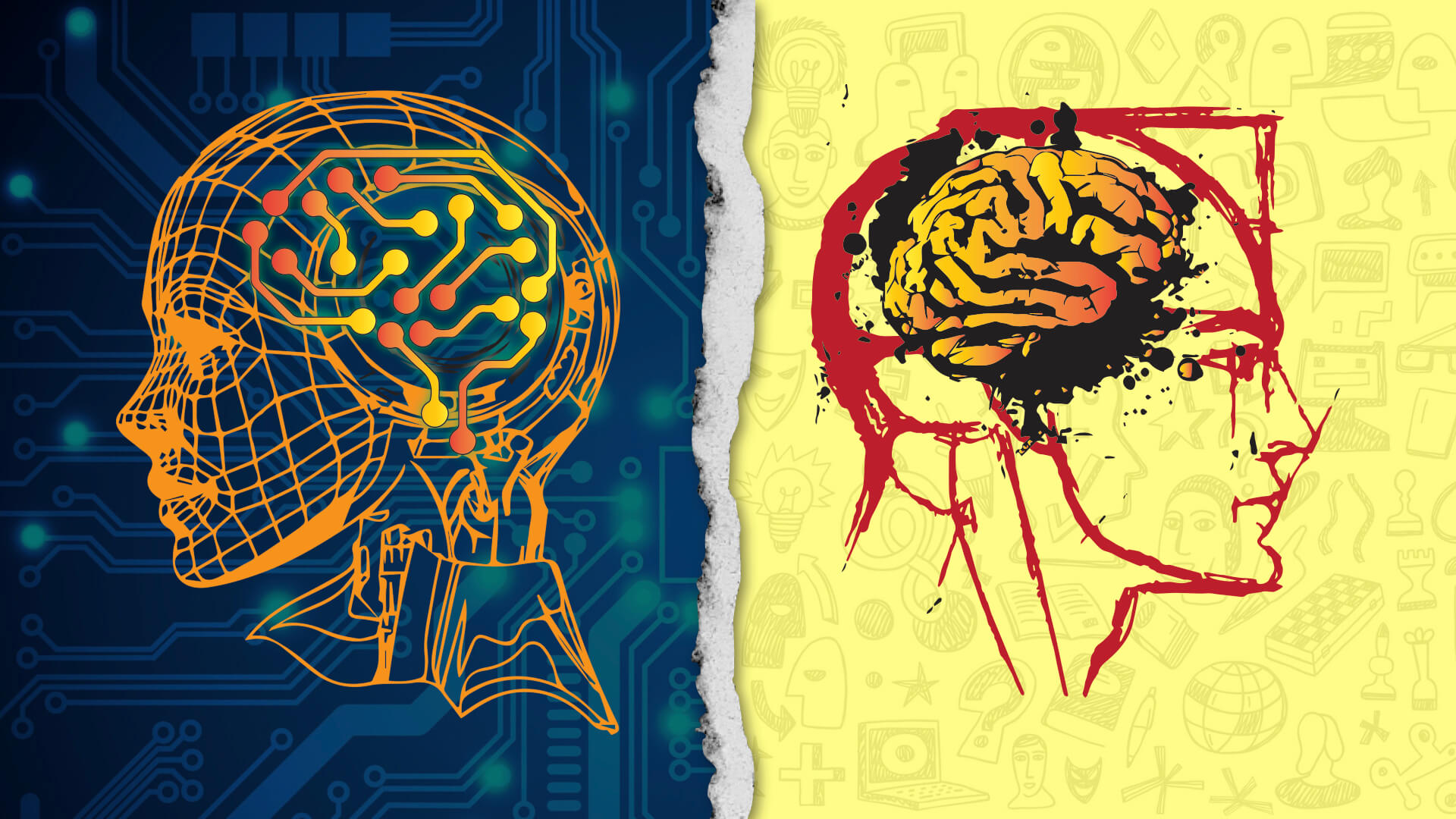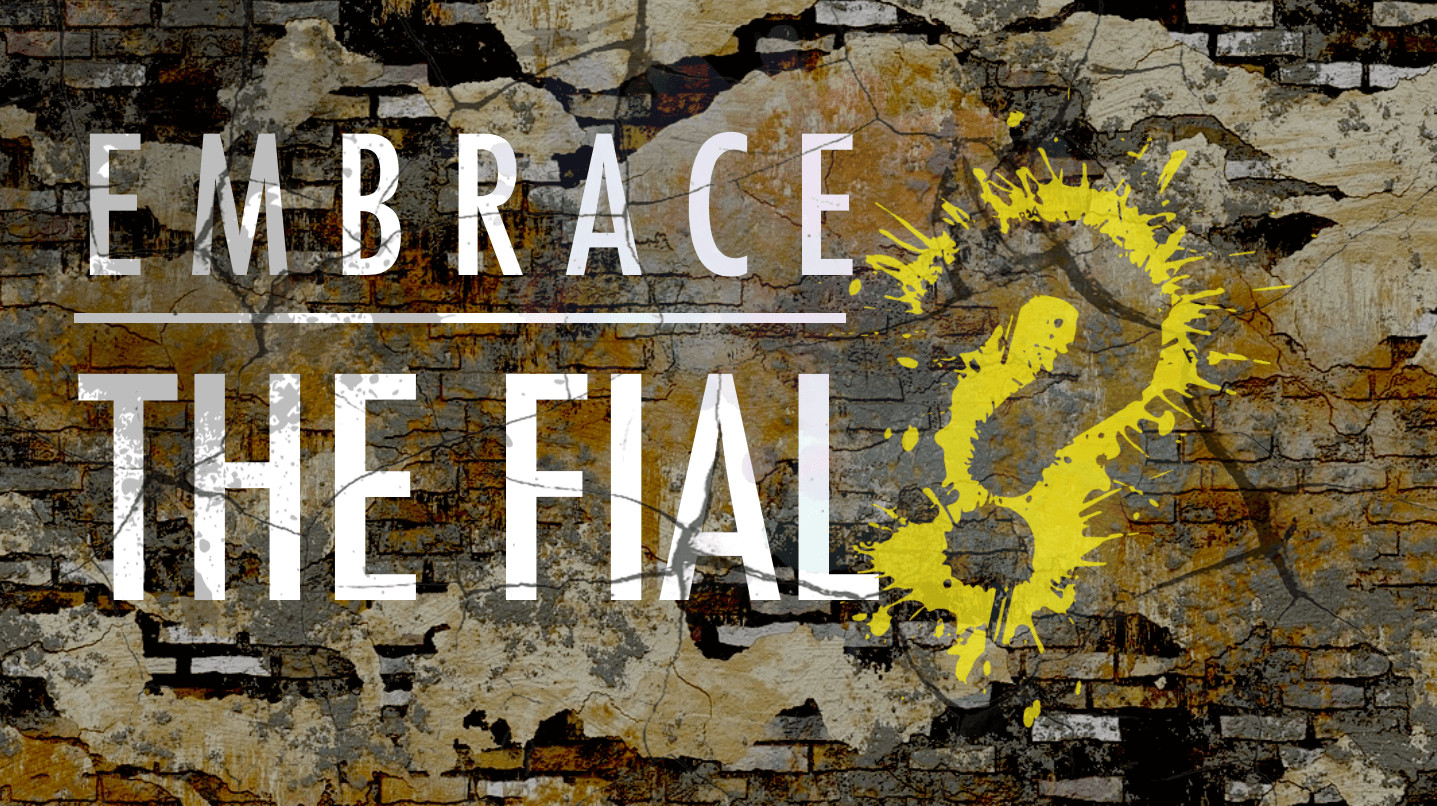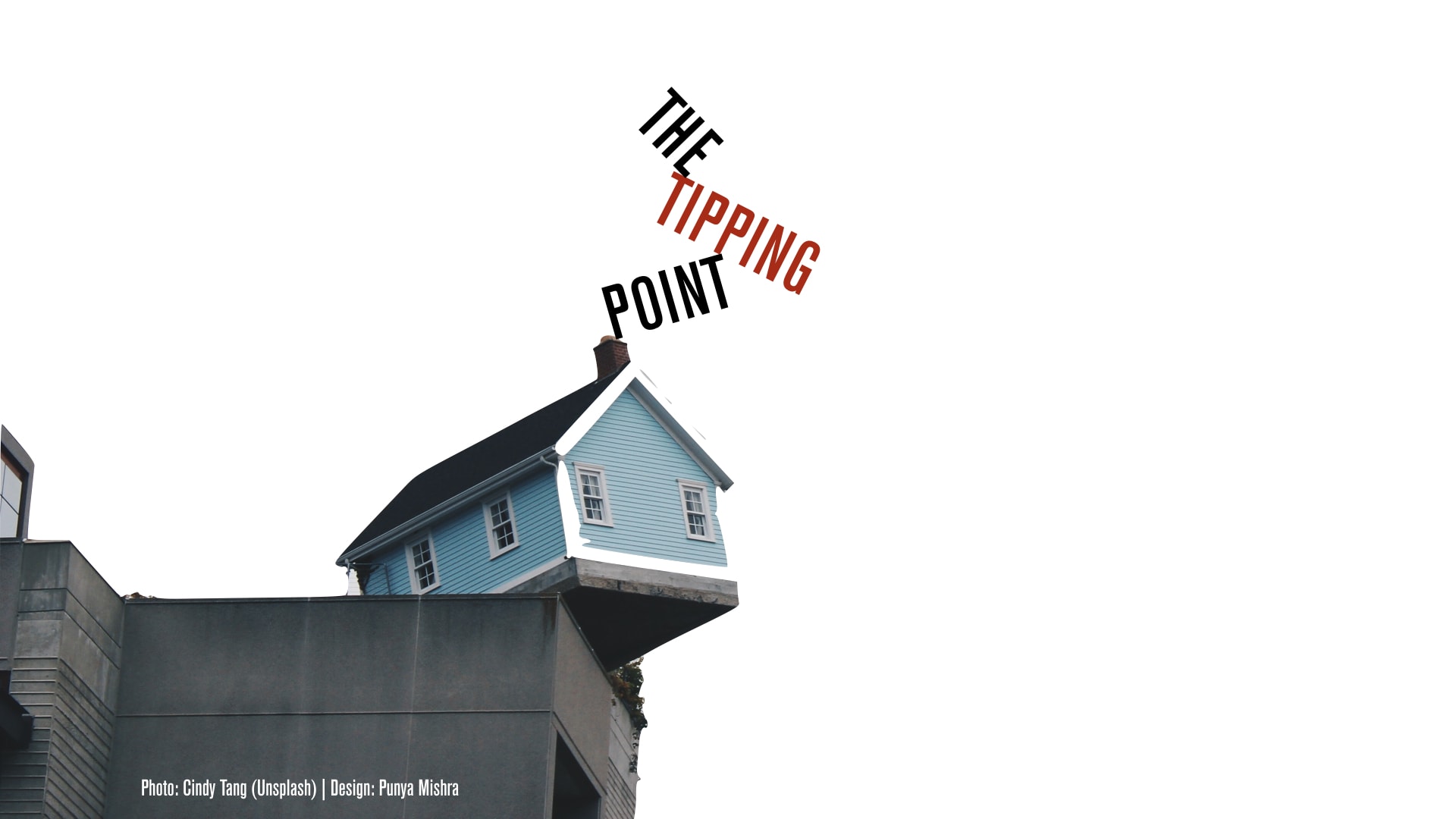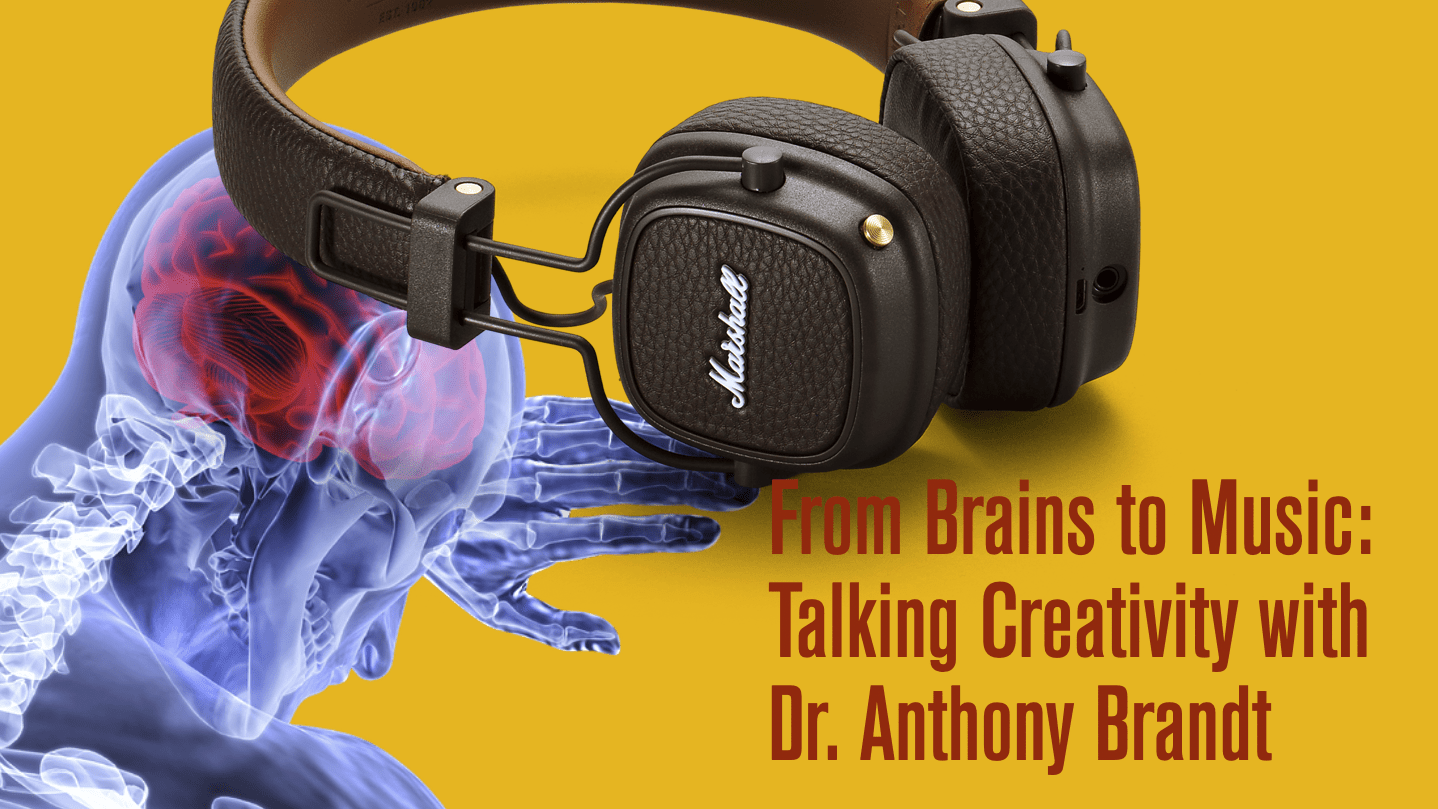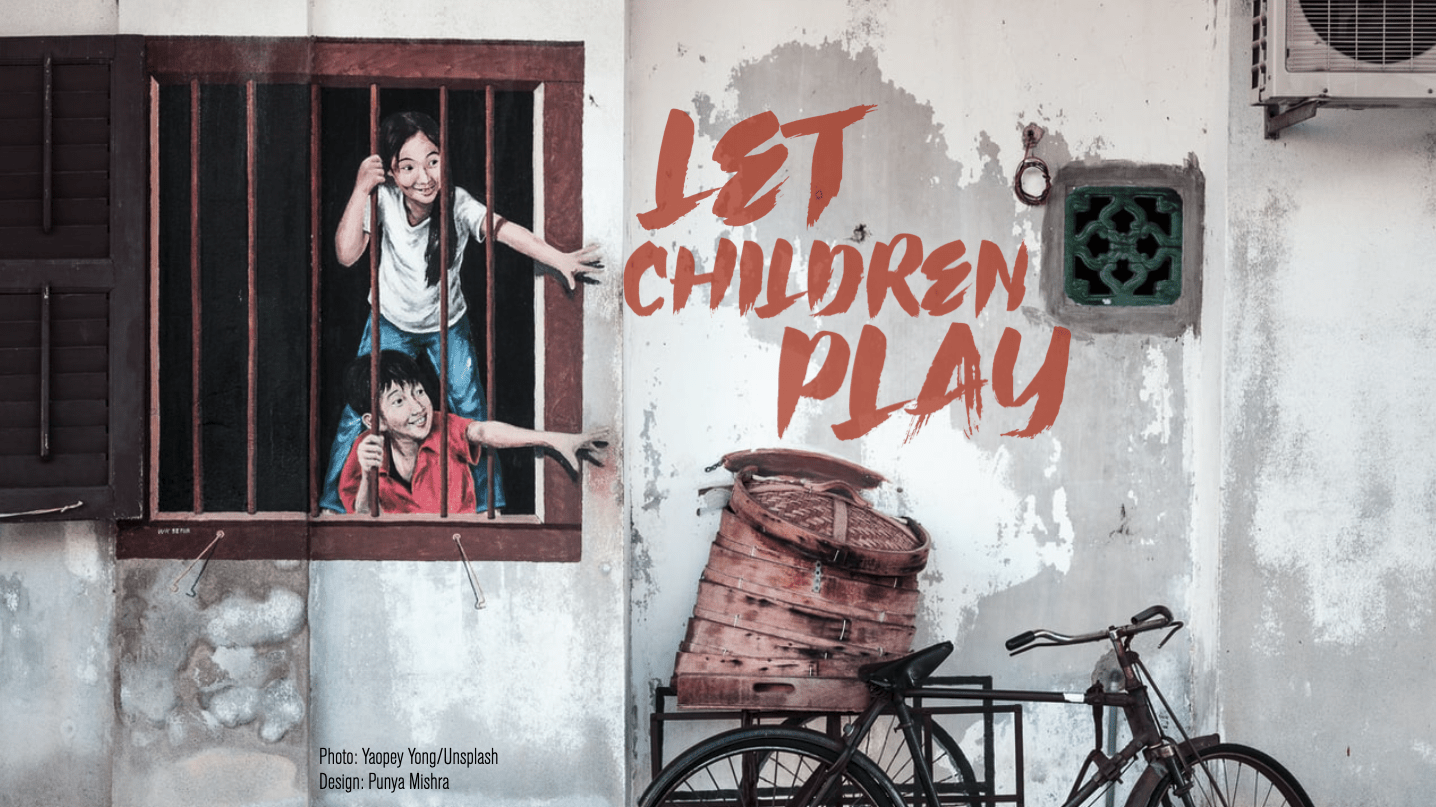Note: The shared blogging experiment with Melissa Warr and Nicole Oster continues. This time we delve into metaphors of the mind, technology and generative AI. The core idea and first draft came from Melissa, to which I contributed a substantial rewrite. The final...
Who speaks for the university? Social fiction as a lens for reimagining higher education futures
Note: Image above created using Adobe Firefly, Photoshop and composed in Keynote. A few years ago, I had the pleasure of connecting with author Dr. Phoebe Wagner through the Center for Science and the Imagination at Arizona State University. We discussed her...
The (Neil) Postman Always Rings Twice: 5 Questions on AI and Education
Note: This post has also been cross-posted on the Civics of Technology blog. Marie Heath (with whom I recently co-wrote a blog post about GenAI in Teacher Education: A techno-skeptical perspective) and I were invited to write a chapter for an edited volume titled...
Generative AI: Will history repeat or (just) rhyme
As generative AI continues to reshape our world, we're faced with a crucial question: Will we repeat the mistakes we made with previous technologies or will this time be something different? George Santayana famously warned, "Those who cannot remember the past are...
Media, Cognition & Society through History: A Mapping
If oral cultures prioritize memory and print cultures emphasize systematic organization, what types of knowledge will AI systems foster? Marie Heath and I wrote this line in a chapter that is currently in press. But the idea underlying this quote has been with me for...
Education & the Rise of AI Influencers
I have been thinking hard about the nature of generative AI, what sets it apart from other technologies that have come in the past. It seems to me there are two key factors. The first is its ability to engage in dialogue, in natural language and the second are its...
GenAI 2023: Year in Review
A week or so ago I was joined by friends Sean Leahy, Rachna Mathur and Kellie Kreiser on the Learning Futures Podcast. The topic: looking back on a crazy, dynamic, transformative year of generative AI. As is to be expected, we covered a lot of ground in the...
Keynote Presentation: AI in Education Summit
Note: The image above is the result of a two-stage creative process—done in collaboration with AI. Dall-E was tasked, over multiple iterations, to craft a woodcut-style image, to abstractly capture the idea of AI and education, with dark and light motifs, aiming to...
Andrew Maynard on AI, Responsible Innovation & The Future of Humanity
Welcome once again to our ongoing column series where we delve into the intersection of technology, creativity, and education. Our conversations with authorities such as Chris Dede (Harvard), Ethan Mollick (Wharton), and Kyle Jensen (ASU) have centered around the...
The Desk, the Test, the LMS: The 5 Spaces for (re)Design in Education
What do a teacher's desk, the PISA test and Learning Management Systems (LMS) have in common. Apart from being educational technologies, they are also the heart of a book chapter that Melissa Warr, Kevin Close and I just published in a book titled Formative Design in...
The new convergence
I recently received an email from dean recommending this post titled Thoughts on Now and Then by Andrew Hickey. In this extended essay Hickey provides his thoughts on the new Beatles remake, Now and Then. The essay is a thoughtful and loving analysis of human...
On designing aesthetic educational experiences in science
What is the role of beauty (and aesthetics) in science in science education? This is something that I have been interested in for a long time, going back to highschool. Over the years I have built a small body of scholarship around this topic. Sadly, this work does...
ChatGPT3 is bulls*** artist
Back in 1986 the philosopher Harry G. Frankfurt wrote an essay titled "On bullshit" which he then expanded into a book, published in 2005. Essentially, the essay and the book are a rumination on the distinction between "bullshitters" and "liars." He argues that:...
Bringing Design to Education: IDC Talks
I was recently invited to speak at a series organized by alumni of the IDC School of Design, IIT Powai. As an alum of the same institution it was a great honor to be invited. You can see the entire series here (and I must say there are some awesome speakers there). My...
ChatGPT as a blurry jpeg of the web
Ted Chiang is one of the greatest, insightful writers working today. I had written previously about one his short stories in a post titled: Truth of fact and feeling: Unpacking McLuhan (2/3) about his short story The truth of fact and the truth of feeling. (If you...
Aesthetics and science education: Beauty at Work podcast
Beauty at Work is a podcast that "explores how beauty shapes our lives and the work that we do" hosted by Brandon Vaidyanathan, Associate Professor of Sociology at The Catholic University of America. In its first season the focus is on beauty in science. As part of...
15 years of blogging
January 1, 2008. 15 years ago, almost to the day - I posted my first note to this website (screenshot below). My first blog post, dated Jan 1, 2008 I have had a web presence since 1998 - hand coded, HTML pages, traces of which are still available on the Wayback...
Modeling human behavior: The new dark art of silicon sampling
A couple of months ago I had written this post, On merging with our technologies – which was essentially quotes from a conversation Ezra Klein had with the novelist Mohsin Hamid. I finished the post with a quote speaking the dangers of predictive technologies on human...
Complicating the idea of Design Thinking (in Education)
“Design thinking” is one of the latest buzzwords in education. Proponents argue that design thinking is a tried and tested process for fostering innovation in education while critics suggest that it is the latest fad to sweep through, and will, like others before it,...
The utopian/dystopian futures of online learning: New book chapter
I was invited to wrote a chapter for an edited book titled "The future of online education," edited by Stephen Paul McKenzie, Lilani Arulkadacham, Jennifer Chung and Zahra Aziz. It was an opportunity for me and my co-authors Melissa Warr and Ben Scragg to engage in...
Educational Futures Thinking: New book chapter
The philosopher George Santayana (1910) famously stated, “Those who cannot remember the past are condemned to repeat it.” (p. 284). In other words, the “best” way to prepare for the future is to study the past and through that, identify patterns and trends, and then...
On merging with our technologies (Unpacking McLuhan 4/3)
This is the fourth of what was supposed to be a three post-series about how media influence our thinking. The first post, uses the invention of writing and print to unpack the meaning of McLuhan’s statement, “The medium is the message.” The second post, focuses on a...
The Postman always rings twice: Unpacking McLuhan (3/3)
This is the third of three blog posts about how media influence our thinking. This is the second of three blog posts about how media influence our thinking. The first post, uses the invention of writing and print to unpack the meaning of McLuhan’s statement, “The...
Truth of fact and feeling: Unpacking McLuhan (2/3)
This is the second of three blog posts about how media influence our thinking. The first post, uses the invention of writing and print to unpack the meaning of McLuhan’s statement, “The medium is the message.” The second post, focuses on a story by Ted Chiang that...
The futures of higher ed with Phoebe Wagner
The Center for Science and the Imagination at ASU runs a series of short stories and virtual gatherings that explore issues related to transformative change. Essentially they solicit and publish a (super-short) short story that explores “themes of community,...
Can a computer program be sentient? Insights from Rodolphe Topffer, the father of comic books
Can a computer program be sentient? Or are machines just getting good at "behaving" in ways that make it seem that way? And what does the work of a 18th century caricature artist (and father of the modern comic book) help us understand what is going on when we...
My favorite(?) failure
I was recently asked to write a chapter for a book that my colleague Ron Beghetto was editing with Laura McBain, called My Favorite Failure. Failure is never fun - and to pick one that was your favorite, is like deciding what your favorite form or torture is....
Tipping point for online learning: The interview
I had written a blog post towards the beginning of the pandemic (Tipping point for online learning, OR the postman always rings twice). In this piece, I built on something Neil Postman had written back in 1998 to try and better understand the current context....
From brains to music
From Brains to Music: a Multi-Faceted Discussion of Creativity with Dr. Anthony Brandt Dr. Anthony Brandt, is Professor of Composition and Theory at Rice University and is co-founder and artistic director of the contemporary music ensemble Musiqa. He has co-authored...
Let children play: From evolutionary psychology to creativity
As a part of our ongoing series on creativity we recently spoke with Dr. Peter Gray, professor of Psychology at Boston College. Dr. Gray’s interest in creativity emerges as a consequence of his background in evolutionary psychology and interest in how humans (and...

